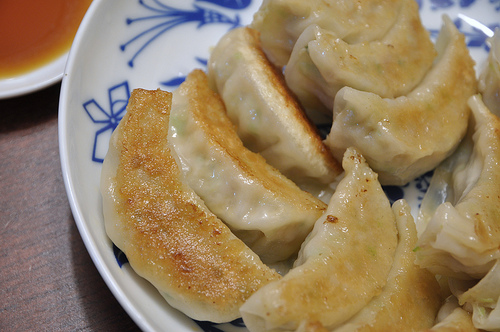A friend of mine had acid reflux. When he ate certain foods — tea, chocolate, foods high in sugar or fat — and when he ate too much, he got a pain in his stomach. “Maybe I’ve got an ulcer,” he thought. He first noticed it after eating brussels sprouts, about a year or so ago. At the time it was only uncomfortable. He was taking Alleve for back pain around that time — that might have messed up his stomach. He was also worrying a lot at the time.
It got worse. Periodically he would have pain in his stomach in the middle of the night and during the day. In particular, after eating Oreo cookies. Mint tea, which he thought would help, made it worse. Friends suggested he try Prilosec OTC. A 14-day course seemed to clear it up. A month after the Prilosec ended, however, he went to a big party. He ate a lot of food, a lot of different things. He woke up in the middle of the night with the worst pain yet. So then he went to a doctor. The doctor said it was probably acid reflux; try Asiphex ($60 for two weeks), he said. It was less effective than the Prilosec. Then I suggested that some sort of fermented product might help. So he bought Activa yogurt. It wasn’t clear if it had any effect; maybe a small one.
Recently he was in Rainbow Grocery, in San Francisco. They sell kombucha. He bought some because I had spoken particularly highly of it. After four days of drinking it, he felt much better even though he’d only finished 3/4s of the bottle. His stomach doesn’t hurt any more. That improves his mood. His back feels a lot better — but that comes and goes. That might be a placebo effect, he says — “even though I don’t believe in kombucha, I think it’s bunk, but I have to admit that it works,” he says.
He’d heard of kombucha from his colleagues about three years ago. They raved about it but it seemed faddish to him. He’d tried it, but just to taste it. He doesn’t eat any fermented foods besides vinegar; he doesn’t drink wine or beer. Hadn’t been eating yogurt. He had gone on a vegan diet for a few months before the Prilosec. He’d thought the vegan diet would protect him from stomach problems, but he was wrong.
He has continued to drink small amounts of kombucha and the improvement has persisted, although recently something mint at a party caused a problem.
